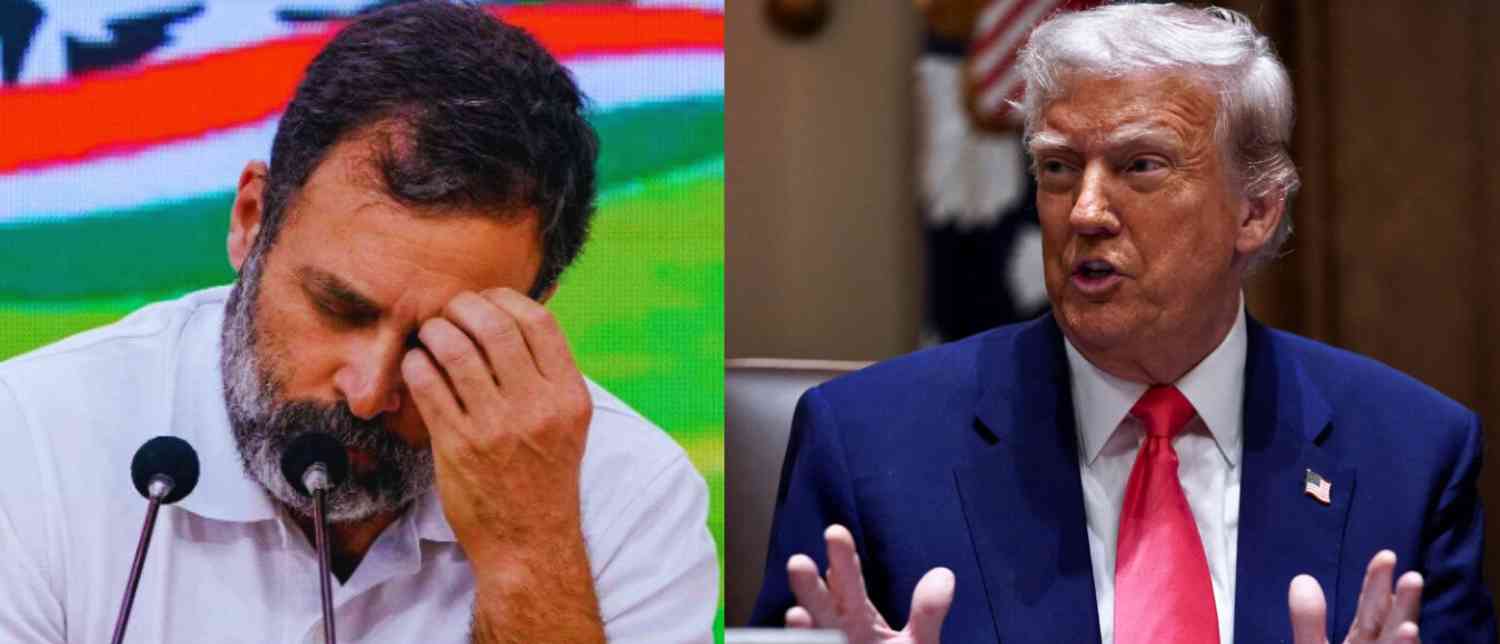Rahul Gandhi's recent endorsement of former US President Donald Trump's remark calling India a "dead economy" has sparked a significant backlash, not only from rival parties but also from members within his own Congress party and allies. The controversy has unleashed a heated debate on India’s economic condition, political strategy, and the implications of supporting such a contentious foreign commentary.
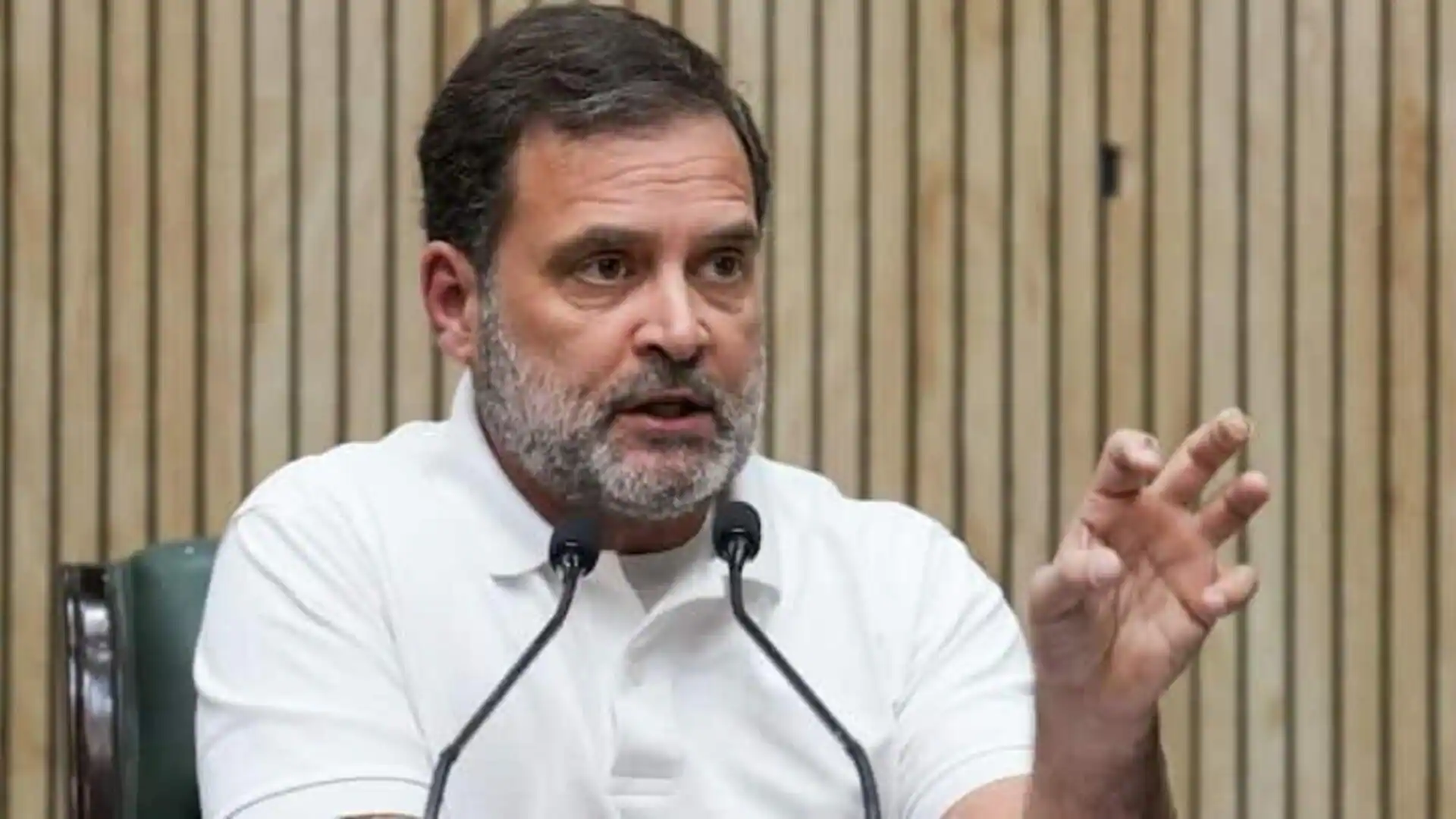
The background of the controversy begins with Donald Trump’s sharp criticism of India, where he described the country’s economy as "dead." This comment came alongside Trump announcing a new 25% tariff on Indian imports, as well as additional penalties related to India’s ongoing trade with Russia. Trump’s statement was part of a broader geopolitical dispute and trade tension between the US and India.
Rahul Gandhi openly supported Trump’s blunt assessment, stating, “Yes, he is right. Everybody knows this except the Prime Minister and the Finance Minister. Everybody knows that the Indian economy is a dead economy. I am glad that President Trump has stated a fact.”
Gandhi accused Prime Minister Narendra Modi’s government of destroying India’s economy, defense, and foreign policies, and suggested that the Modi government prioritizes the interests of corporate houses like Adani over public welfare. He questioned why Modi had not responded effectively to Trump’s remarks on ceasefire claims, Indian jets, and tariff impositions.
However, this endorsement did not go unchallenged. Within the Congress party itself, senior leader Rajeev Shukla strongly disagreed, defending India’s economy and crediting economic reforms to previous governments as well as some efforts of the current administration. Shukla argued that the Indian economy was far from dead and pointed to continued economic growth and global recognition.
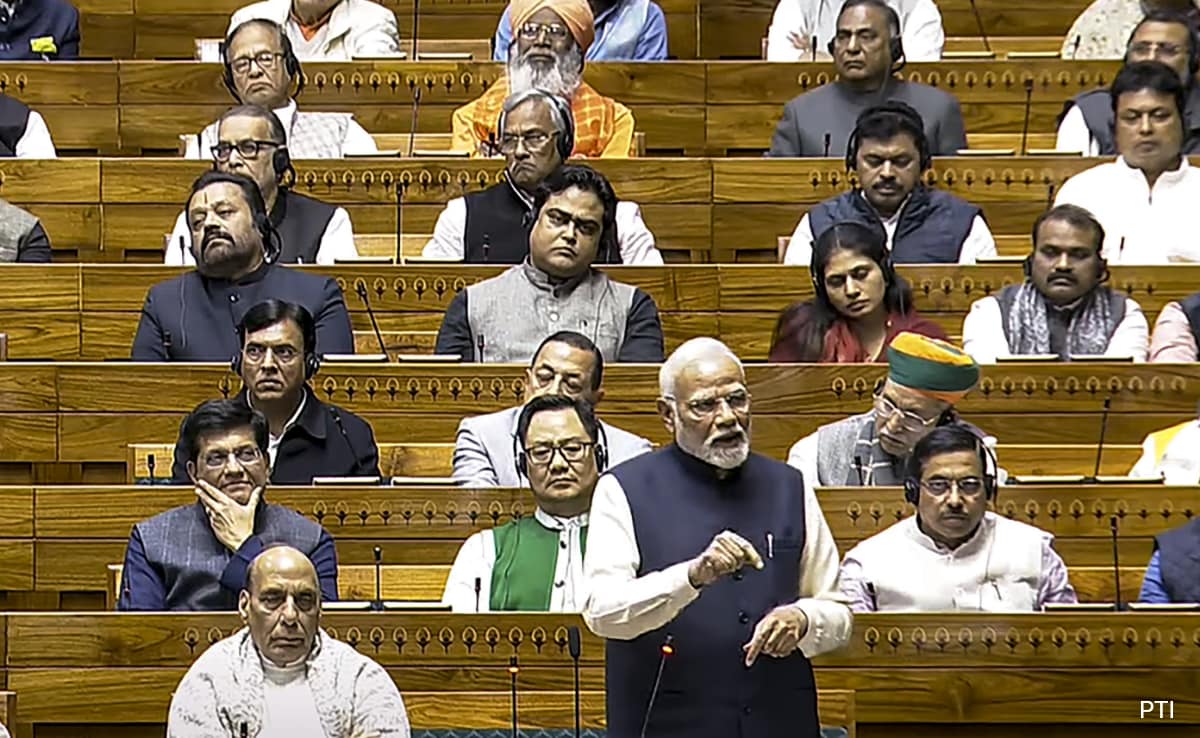
The Bharatiya Janata Party (BJP), the ruling party led by PM Modi, quickly condemned Rahul Gandhi’s remarks. BJP leaders described his backing of Trump’s "dead economy" comment as a "shameful insult" to the aspirations and achievements of the Indian people. BJP’s IT head Amit Malviya said Gandhi had hit a new low, damaging his political credibility by aligning with a foreign leader’s disparaging remark about India’s economy. They presented data showing that India remains one of the fastest-growing major economies, with international institutions like the IMF and World Bank revising growth forecasts upward.
The controversy highlights a rare and stark public disagreement within the opposition Congress party, where Gandhi’s blunt criticism contrasts sharply with other leaders’ more cautious defense of the economy. It also reveals the complex political dynamic where a domestic leader’s endorsement of a foreign adversary’s critical remarks about his own country raises broader questions of patriotism, political messaging, and public perception.
From a wider perspective, this episode brings attention to genuine concerns about India’s economic challenges. While India indeed faces issues such as unemployment, inflationary pressures, and external trade conflicts exemplified by the US’s tariff imposition, calling the entire economy "dead" is an oversimplification. India’s economy is large and diverse, continuing to grow at a significant pace compared to many countries, though not without areas needing reform and policy focus.
Public opinion around this controversy reflects a mix of views. Supporters of Rahul Gandhi appreciate his candidness and see his comments as a wake-up call against government complacency. Critics, however, feel that his alignment with Trump’s remarks damages India’s global image and unnecessary aids foreign criticism. Some analysts suggest that such statements, especially from prominent leaders, should be more measured to avoid undermining national confidence.
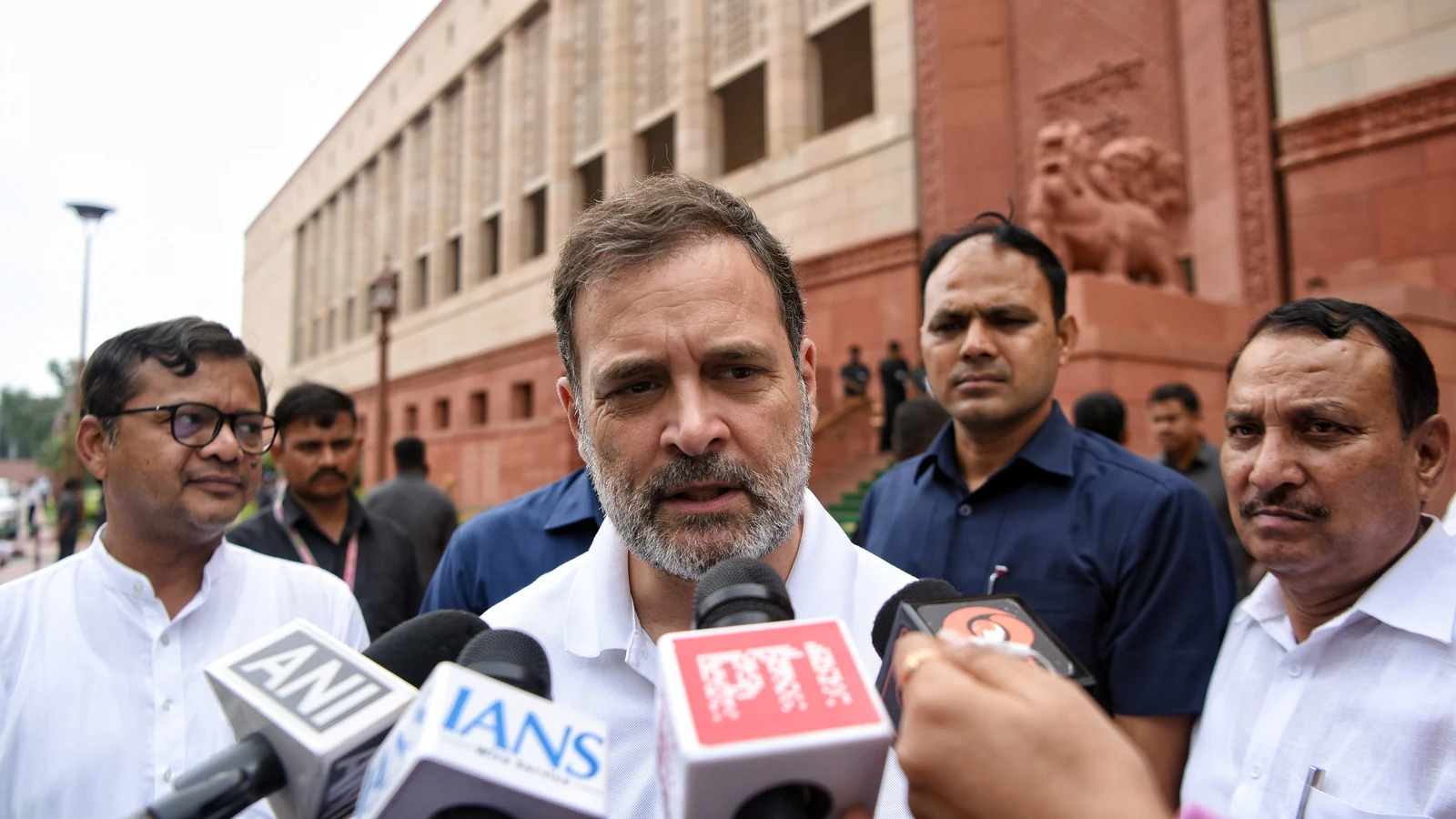
In conclusion, Rahul Gandhi’s backing of Trump’s ‘dead economy’ jibe at India has opened a contentious debate across political lines and within his party. It has spotlighted real economic worries but also raised questions about the effective way political leaders should address these challenges without lending credence to foreign critiques. The episode illustrates the delicate balance between political criticism and national solidarity in a complex global economic environment.
With inputs from agencies
Image Source: Multiple agencies
© Copyright 2025. All Rights Reserved. Powered by Vygr Media.

